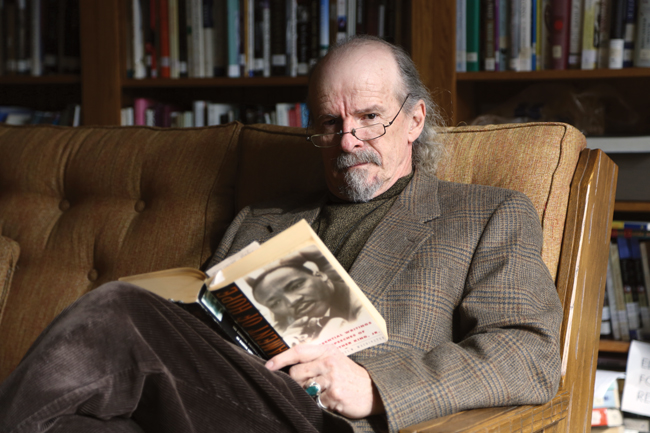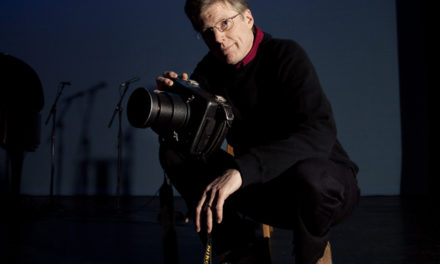BY MIKE LEONARD
Bill Breeden is a humble man with an extraordinary claim: “I consider myself the luckiest guy on the planet,” he says confidently. “And I’d be willing to debate that with anyone.”
From evangelical preacher to passionate peace activist to a highly unlikely and controversial minor player in the Iran-Contra scandal and, most recently, Unitarian Universalist minister, the Odon, Ind., native has covered a lot of ground in his 65 years.
A year ago, he took a four-month sabbatical to write a memoir, and on June 30, he will step down from his position at the Unitarian Universalist Church of Bloomington. Some time soon he hopes to have cut down, revised, and readied for publication that autobiography, Billy Pilgrim and the Black Female Jesus. The title’s a nod to a hero, Hoosier writer Kurt Vonnegut Jr. and his character from Slaughterhouse-Five, with whom Breeden believes he shares the affliction of being “unstuck in time,” and Breeden’s spiritual epiphany from an encounter with a poverty-stricken black woman in Nashville, Tenn.
Many people know of Breeden because of his extraordinary experience after appropriating a street sign in his hometown that honored Odon’s John Poindexter, who, as national security adviser to President Ronald Reagan, led several operations in what was labeled the Iran-Contra Affair and was convicted of five counts of lying to Congress (the convictions were later overturned on appeal). For a long time, Breeden was the only person to serve jail time for anything related to Iran-Contra (felony theft of that $35 street sign) and the whole head-scratching incident became the topic of a 1994 PBS documentary, titled The Times of a Sign.
Through that experience and others related to peace activism, Breeden considers himself fortunate to have met and developed friendships with people he admires, such as historian Howard Zinn and former Roman Catholic priest Philip Berrigan. He hopes to continue his lifelong advocacy for peace and social justice after leaving his full-time job at the Unitarian church.
Breeden is both wary and hopeful about mankind’s collective future.
“If the human species joins the ranks of the extinct, if there’s a post-mortem, I think the conclusion will be that our brains are too big and our hearts are too small,” he says. “But I’m very hopeful. I think young people are more progressive than we were. Equality and liberty and environmental responsibility — those are areas where young people are ahead of us.
“It’s not a matter of reasoning our way out of the mess we’re in,” Breeden says. “It’s loving our way out.”












bill breeder is my uncle and i love sitting when i was younger and listening to him and my uncle darrel and uncle carl and aunt kate walkabout things them and my dad did as kids and as young men and stuff they are still doing today i am very proud to have the last name breeden
Would like to speak with Bill about his impressions of the “Iran -Contra Affair”. I am a filmmaker working on the story and would like to hear from the activist who took action to protest the incident. My film is http://www.intheinterestofnationalsecurity.com and my number is (417)317-5995. Hope you find a few minutes to discuss the moral and other issues of the events. R. James Roberson